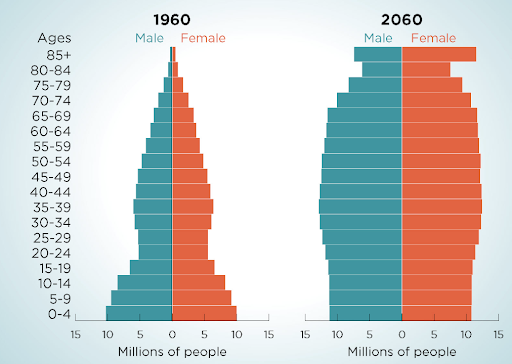Source: The Internet and the Third Estate | Stratechery, by Ben Thompson
Mark Zuckerberg suggested that social media is a “Fifth Estate”; in fact, social media is a means by which the Third Estate — commoners — can seize political power.
…
in the Middle Ages the principal organizing entity for Europe was the Catholic Church. Relatedly, the Catholic Church also held a de facto monopoly on the distribution of information: most books were in Latin, copied laboriously by hand by monks. … The printing press changed all of this. … the First Estate became not the clergy of the Catholic Church but a national monarch, even as the monarch gave up power to a new kind of meritocratic nobility epitomized by Burke. In other words, Burke’s Fourth Estate was the means by which the Second Estate overthrew the first.I would go further: just as the Catholic Church ensured its primacy by controlling information, the modern meritocracy has done the same, not so much by controlling the press but rather by incorporating it into a broader national consensus.
…
my argument [in 2016’s TV Advertising’s Surprising Strength — And Inevitable Fall] is that every part of the media-advertising-industrial complex was threatened by the Internet.The inescapable reality is that TV advertisers are 20th century companies: built for mass markets, not niches, for brick-and-mortar retailers, not e-commerce. These companies were built on TV, and TV was built on their advertisements, and while they are propping each other up for now, the decline of one will hasten the decline of the other.
There is no reason this reality shouldn’t apply to nation-states as well.
The likelihood any particular message will “break out” is based not on who is propagating said message but on how many users are receptive to hearing it. The power has shifted from the supply side to the demand side. … And, by extension, the most successful politicians in an aggregated world are not those who serve the party but rather those who tell voters what they most want to hear.
If Facebook has the potential for immense influence on politics, why on earth would anyone want the company policing political speech?
China is building its own internet focused on very different values, and is now exporting their vision of the internet to other countries. Until recently, the internet in almost every country outside China has been defined by American platforms with strong free expression values. There’s no guarantee these values will win out. A decade ago, almost all of the major internet platforms were American. Today, six of the top ten are Chinese.
We’re beginning to see this in social media. While our services, like WhatsApp, are used by protesters and activists everywhere due to strong encryption and privacy protections, on TikTok, the Chinese app growing quickly around the world, mentions of these protests are censored, even in the US.
Is that the internet we want?
Indeed, this gets at why the Facebook questions are so critical: the company’s critics that argue that Facebook is too big are making a cogent argument that reconciles concerns about Facebook’s power with a desire to control misinformation; critics that ignore these tradeoffs, though, come across as authoritarians in their own right, disappointed in Facebook only so far as the company fails to leverage its power to enforce their personal preferences.
And so we are back to China. The U.S. specifically and the West broadly is not going to out-authoritarian an avowedly Marxist regime with a demonstrated willingness to use “re-education camps” and omnipresent surveillance to ensure the Second Estate era — that of the cohesive nation-state — remains in place. To fight the Internet’s impact, instead of seeking to understand it and guide the fundamental transformations that will surely follow, is a commitment by the West to lose the fight for the future.
